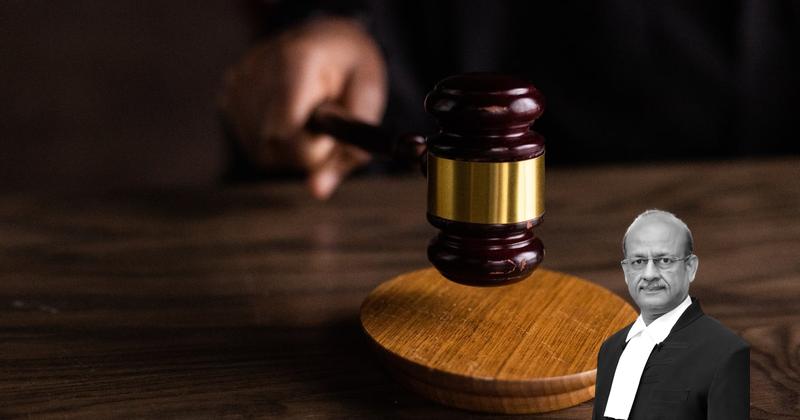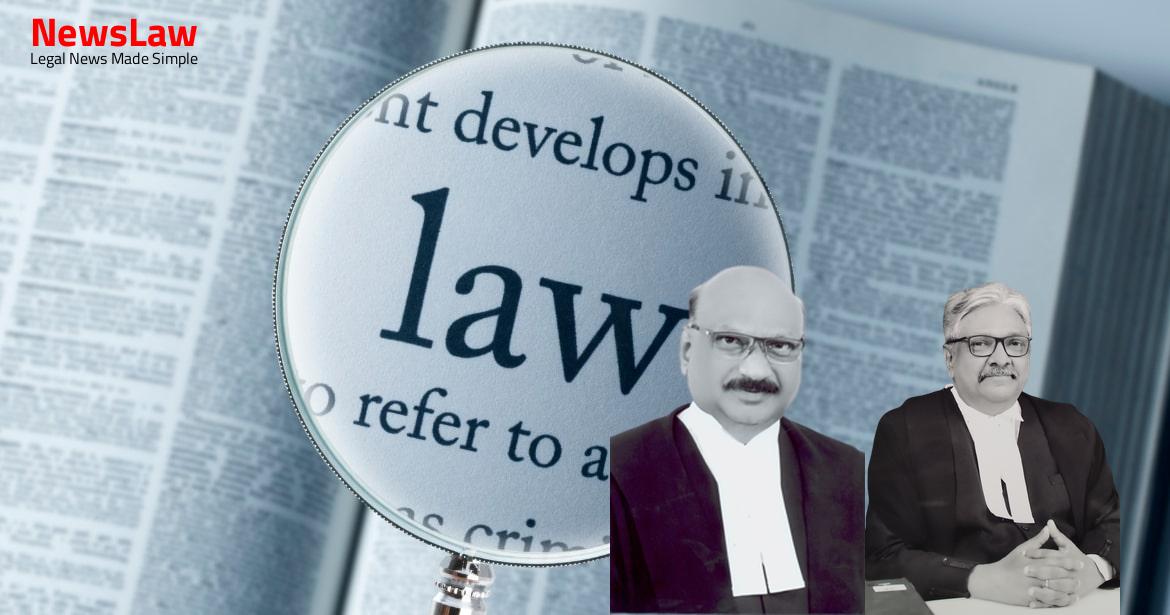It is the case of the appellant that those documents had been eventually filed on record in Criminal Case No 19 of 2003 pending against the appellant before the Judicial Magistrate First Class, Ramtek (hereinafter referred to as the “JMFC”).
Also Read: https://newslaw.in/case-type/criminal/application-of-section-426-ipc-in-detenus-case/
Learned Additional Sessions Judge, however, found that the allegations made by the revision petitioners were serious in nature, and therefore, directed that if any application is filed by the appellant under Section 340 of the Criminal Procedure Code, 1973 (for short, “Cr.P.C.”), the learned JMFC would make a suitable preliminary enquiry and thereafter, record his finding to that effect as contemplated under Section 340 of the Cr.P.C.
Sachin Patil has relied on the judgment of the Constitution Bench of this Court in the case of Iqbal Singh Marwa and Another v. Sachin Patil further submits that though the judgment of the Constitution Bench was cited before the learned Single Judge of the High Court, it did not consider the same in correct perspective.
Rahul Chitnis, on the contrary, submits that the appellant has already accepted the order passed by the Revisional Court and filed an application under Section 340 of the Cr.P.C.
Also Read: https://newslaw.in/supreme-court-upholds-acquittal-of-accused-in-hebbale-property-dispute-case/
It would thus be clear that for taking cognizance of an offence, the document, the foundation of forgery, if produced before the court or given in evidence, the bar of taking cognizance under Section 195(1)(b)(ii) gets attracted and the criminal court is prohibited from taking cognizance of offence unless a complaint in writing is filed as per the procedure prescribed under Section 340 of the Code by or on behalf of the Court.
The scope of the preliminary enquiry envisaged in Section 340(1) of the Code is to ascertain whether any offence affecting administration of justice has been committed in respect of a document produced in court or given in evidence in a proceeding in that Court.
One possible interpretation is that when an offence described in Section 463 or punishable under Section 471, Section 475 or Section 476 IPC is alleged to have been committed in respect of a document which is subsequently produced or given in evidence in a proceeding in any Court, a complaint by the Court would be necessary.
On this interpretation if the offence as described in the Section is committed prior to production or giving in evidence of the document in Court, no complaint by Court would be necessary and a private complaint would be maintainable.
Also Read: https://newslaw.in/case-type/criminal/quashing-of-fir-in-a-matrimonial-dispute/
It is nobody’s case that any offence as enumerated in Section 195(1)(b)(ii) was committed in respect to the said will after it had been produced or filed in the Court of District Judge.
Case Title: ASHOK GULABRAO BONDRE Vs. VILAS MADHUKARRAO DESHMUKH (2023 INSC 724)
Case Number: Crl.A. No.-001931-001931 / 2011



